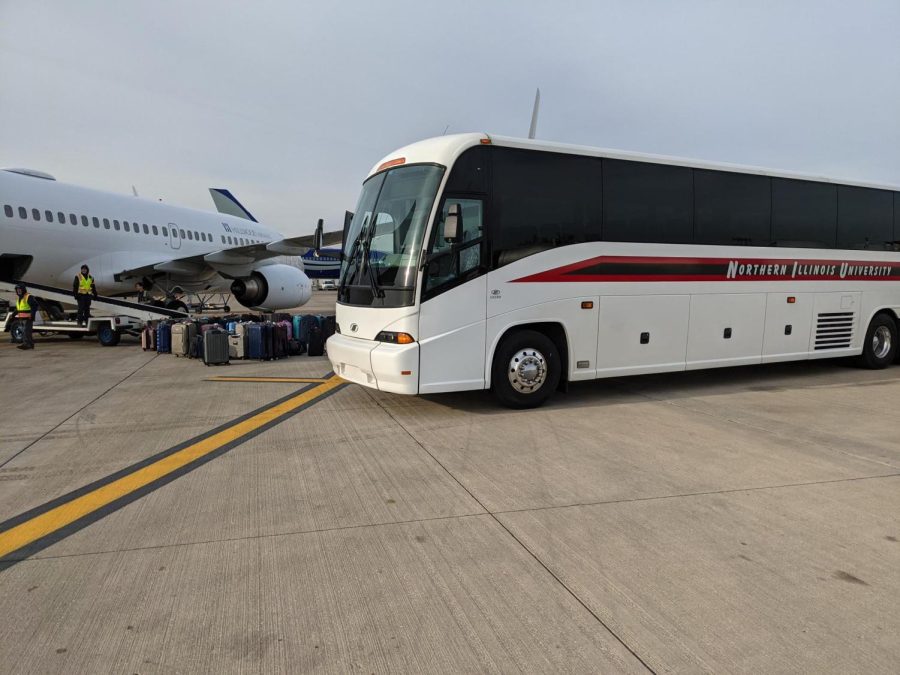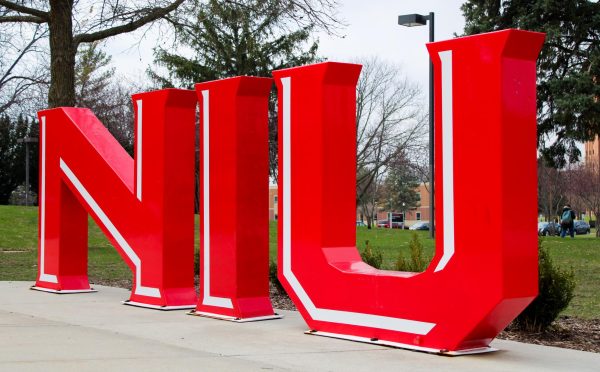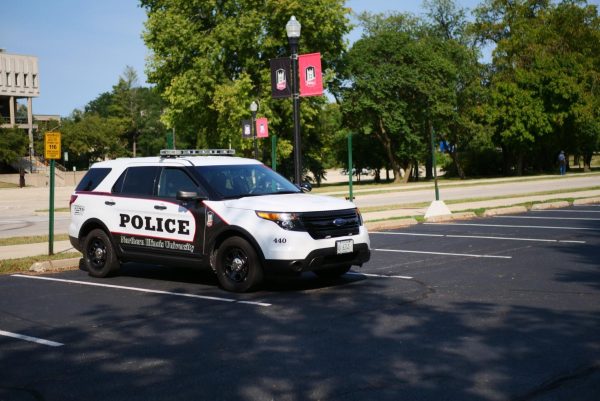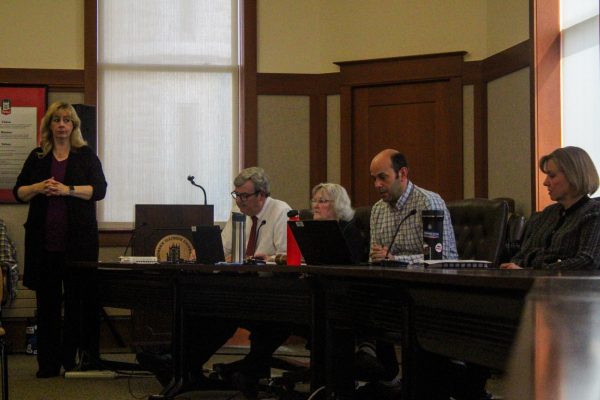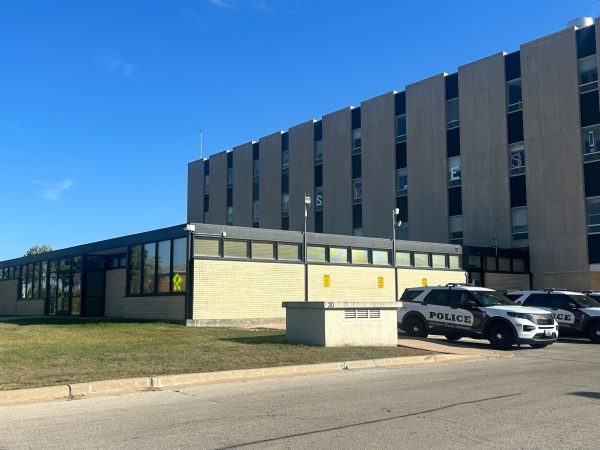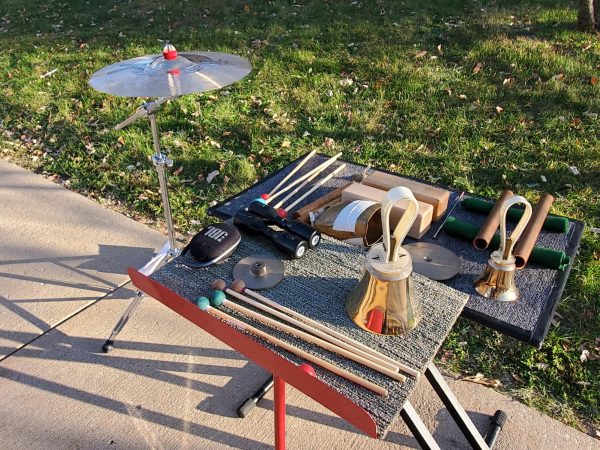NIU to discontinue motorcoach bus system
DeKALB – Northern Illinois University’s Department of Facilities Management and Campus Services will discontinue the motorcoach bus system. While there is no set plan as to when the buses will be discontinued, NIU will completely outsource its transportation needs.
NIU currently has approximately 250 vehicles for various transportation needs, according to the NIU Transportation Services website. Among the fleet of vehicles are three operational buses that have been servicing sports teams, school organizations and academic field trips.
This system is not to be confused with the Huskie Bus Line, which is public transportation servicing both NIU students and DeKalb residents.
WHY NIU IS COMPLETELY OUTSOURCING BUSING NEEDS
The decision to outsource transportation needs was due to driver availability and the cost of replacing the three buses, said John Heckmann, Associate Vice President of Facilities Management and Campus Services.
“There’s a significant shortage in drivers,” Heckmann said. “We have had only one driver available for the past couple of years.”
That one driver is Michael Storandt, who started working at NIU as a driver 11 years ago.
“I was one of five drivers and now I am the last,” Storandt said.
After being told of NIU’s plans to begin phasing out the bus system, Storandt informed the university that he would leave his job after the spring semester so the transition could go as smoothly as possible.
Despite being the one driver NIU has, Storandt has accounted for 25% of NIU’s busing needs during the COVID-19 pandemic, Heckmann said. When NIU had more drivers for its three buses before the pandemic, the system could handle 60% of NIU’s bus requirements.
Now, with just one bus driver, the university can only use one bus at a time and all three of them are 14 years old.
“Our remaining buses are in the last portions of their lives,” Heckmann said.
THE CONS OF OUTSOURCING
Rather than replace the buses, NIU will hire independent transportation companies.
However, this decision has some faculty, who regularly use NIU’s buses, worried about the change, especially from an economic lens.
One of them is Melissa Lenczewski, the director of the Institute for the Study of Environment, Sustainability and Energy, who uses the buses for field trips and academic events.
“We use the student fees for our classes to pay for the buses and they are affordable,” Lenczewski said. “I can keep fees very low. If we’re going to get (outside) buses, it will raise costs. We’ll either have to raise prices or get rid of hands-on activities.”
The cheaper cost of the buses has also created greater opportunities for grant recipients, said James Cohen, an associate professor in the College of Education. When Cohen received grants to bring in foreign teachers to NIU to learn about the American education system, he used NIU’s buses for transportation which allowed Cohen to bring in more people.
Cohen said that this change could result in less money to use in grant projects or even fewer grants being awarded.
Whether NIU replaces their buses or uses outside contractors, the price of using buses would always go up, Heckmann said.
When NIU used outside companies, the communication with drivers wasn’t as strong, Lenczewski said.
“They just don’t know our campus,” Lenczewski said. “The NIU drivers know exactly where I’m going. They can make changes easily and they’re easy to get a hold of.”
To Cohen, the buses at NIU are not just good, reliable transportation. They are also a symbol of pride for NIU students and visitors who always want their pictures taken with the vehicle. The drivers are an essential part of that experience.
“We get to know the drivers,” Cohen said. “They talk with students, teachers and visitors. They add to the experience here.”
THE END OF AN ERA
NIU is one of few universities to have a fleet of buses at its disposal, Heckmann said. Several Illinois universities, including Eastern Illinois University, Illinois State University and the University of Illinois at Champaign-Urbana, have fleets of vehicles but no buses.
Now that NIU will no longer use itsbuses, it marks the end of an era for the faculty and students who rode them and the people that drove them.
“While I may not agree with the decision for the university, at a time of reduced capacity and driver shortages within the motorcoach industry, to move to complete outsourcing of its transportation needs, I understand that change is inevitable,” Storandt said. “While it was always enjoyable to drive a rolling billboard for the university and meet so many great Huskies who wanted to take their picture with the bus, I will always be thankful for my time working for NIU.”


